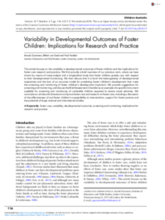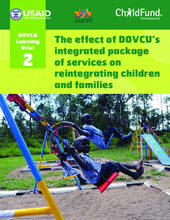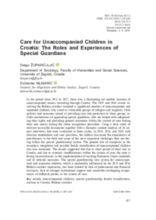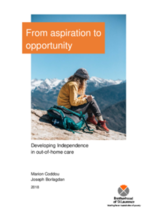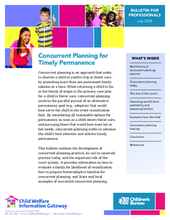Displaying 1361 - 1370 of 2221
This article focuses on the variability in developmental outcomes of foster children and the implications for foster care research and practice.
This learning brief analyzes quantitative data from the second of the “Deinstitutionalization of Orphans and Vulnerable Children in Uganda” (DOVCU) project’s stated objectives: examining the extent to which DOVCU project interventions decrease vulnerabilities for reintegrating children and their families.
Special guardians have been tasked with safeguarding the rights of unaccompanied minors in Croatia and providing general assistance within the system of care during their stay and/or during the status recognition procedure. The authors of this study discussed the experiences of practitioners in the field and some of the most important challenges they are facing within the special guardianship system.
The aim of this special issue of the International Journal of Longitudinal and Life Course Studies is to examine the outcomes of children who were raised for part of their childhood in out-of-home care, including in foster care and institutions.
This article is based on research about children in long-term care. It focuses on the factors that help and hinder a child being and feeling stable in their foster home and having a sense of permanence.
The report presents an evaluation of the second stage of the the Developing Independence (DI) in Out-of-home care (OOHC) pilot in Melbourne, Australia.
This paper identifies key educational outcomes among young people in care in Ontario (Canada) of pre-school, elementary, secondary, and post-secondary age.
This bulletin for professionals explores concurrent planning, which is an approach that seeks to reduce the amount of time children spend in foster care by considering all reasonable permanency options the moment a child enters the system.
This comprehensive reference offers a robust framework for introducing and sustaining trauma-responsive services and culture in child welfare systems.
The aim of this study was to examine the outcomes of out-of-home placement in adolescence.

